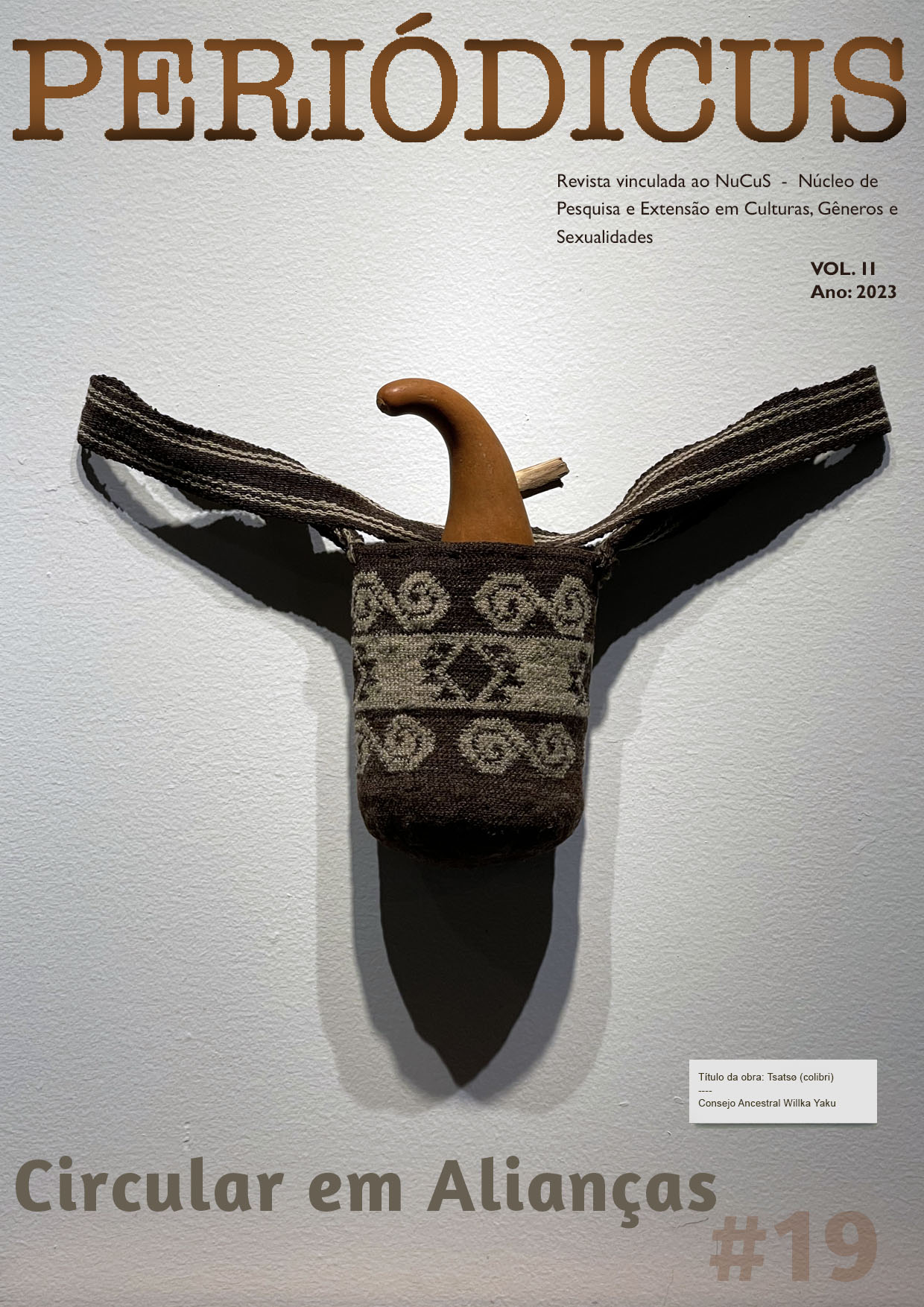Critic to the sexnormative readings of “Sargento Garcia”, by Caio Fernando Abreu
DOI:
https://doi.org/10.9771/peri.v2i19.55729Abstract
This study aims to criticize the most current interpretations of “Sargento Garcia”, short story from Morangos mofados, by Caio Fernando Abreu. Supported by the researches of Arenas (1992), Camargo (2010), Ginzburg (2012), among others, it’s pointed that several studies have a sexnormative perspective focused on the (homo)sexual features of the writing of Caio Fernando Abreu, which eclipses other reading possibilities. The concept of sexnormativity comes from debates of the asexual community and it’s used according to the definition of Oliveira (2015). With the (re)reading of the story and the resumption of the allegoric critique to the dictatorship, the analysis indicates the incoherences of works that disregard the violence that permeates the narrative in favor of a homoerotic relation between the characters. With the study of Peter Fry (1982) about the male sexuality, it is argued that in the story there’s a critic to the hierarchical system that divides “men” and “bichas”.
Downloads
Downloads
Published
How to Cite
Issue
Section
License
Copyright (c) 2023 Luiz Gustavo Osório Xavier

This work is licensed under a Creative Commons Attribution-NonCommercial 4.0 International License.
Autores que publicam nesta revista concordam com os seguintes termos:
Autores mantêm os direitos autorais e concedem à revista o direito de primeira publicação, com o trabalho simultaneamente licenciado sob Licença Creative Commons Attribution Noncommercial que permite o compartilhamento do trabalho com reconhecimento da autoria e publicação inicial nesta revista, sendo vedado o uso com fins comerciais.
Autores têm autorização para assumir contratos adicionais separadamente, para distribuição não-exclusiva da versão do trabalho publicada nesta revista (ex.: publicar em repositório institucional ou como capítulo de livro), com reconhecimento de autoria e publicação inicial nesta revista.
Autores têm permissão e são estimulados a publicar e distribuir seu trabalho online (ex.: em repositórios institucionais ou na sua página pessoal) a qualquer ponto antes ou durante o processo editorial, já que isso pode gerar alterações produtivas, bem como aumentar o impacto e a citação do trabalho publicado (Veja O Efeito do Acesso Livre).







